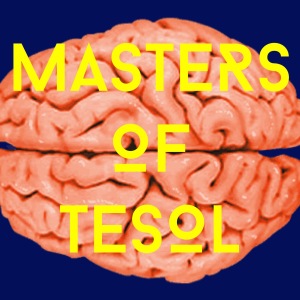teaching English
ESL / EFL Lesson Planning 01
In the first of a series of videos, we look at the most effective way to plan a lesson to ensure you stay on target and make sure all the pieces fit together.
These videos will replace the podcast as my primary media, so feel free to subscribe.
https://www.youtube.com/channel/UCKbariMdEytYHdmkpXiILnQ/videos
23 – Should we DE-ACCENT our students? – Sam Hellmuth
THIS IS THE LAST PODCAST (for the foreseeable future).
I’m hardly prolific with podcast releases but this will be the last one for the foreseeable future. I’ve decided to concentrate more on the YouTube side of things.
YouTube Channel – www.youtube.com/channel/UCKbariMdEytYHdmkpXiILnQ
The channel will have materials, concept videos and general useful teaching stuff! Please do all the usual YouTube stuff so I can be more visible on the site and you know when new videos are released (plus, it’s a digital pat on the head for me).
With Sam Hellmuth of York University, England, we think about these questions:
- With language acquisition, which comes first – production or perception?
- Why do your students sound angry when they aren’t?
- How much does accent affect comprehension?
- Can we learn to ‘de-accent’?
- Should we bother teaching English stress patterns?
Sam smoothly mixes theory and practical tips with some excellent real-world examples. Something for everyone.
We make a few references to the Lingua Franca Core, which is a topic that was covered way back in episode 4. If you need a refresher, you can find it here – https://mastersoftesol.wordpress.com/2015/02/13/04-questioning-the-native-english-norm-jennifer-jenkins/
Sam Hellmuth York University Bio – www.york.ac.uk/language/people/academic-research/sam-hellmuth/
Sam Hellmuth Twitter – twitter.com/samhellmuth?lang=en
Sam Hellmuth Site – samhellmuth.com
Masters of TESOL website – https://mastersoftesol.wordpress.com/
Masters of TESOL – @MOTcast
Involving Every Student – Classroom hacks
An easy way to make sure that every student contributes to class. This video shows an easy way to mentally track who has spoken in class. Basic, but useful!
Students’ Thinking Skills – Bloom’s Taxonomy – a simple explanation
Language is more than just memorising vocab and comprehension questions. Students need a range of thinking skills. This video helps with the WHAT, HOW, and WHY of doing more with our activities.
19 – Reflective Practice – Thomas Farrell
The self-styled ‘bad boy’ of language teaching, Thomas Farrell, dropped by my office to take about self reflection. What do we do in the classroom and, importantly, WHY do we do it? Who are YOU as a teacher and what do YOU bring into the classroom?
Start adding this reflective practice regularly to your professional life and you’ll be surprised at the difference it can make to your personal and professional development.
Also a good lesson about having a safety net. I recorded this with my fancy MICs but the recordings failed for some reason, so this is based on my phone back-up recording. Phew….
16 – Eytan Zweig – what words really mean – semantics and pragmatics
Plurals are easy, right? There’s one or there’s more than one… pretty straight forward. “All”, “every”, “All the” “each” – that’s pretty simple too, isn’t it? Well, hold on to something sturdy as Eytan Zweig gets you to think a little deeper about how we both form and understand language.
The literal meaning (semantics) and the meaning of the use (pragmatics) of the language is a vital part of how we communicate in real life. So, let’s a show like this is chomping at the bit to dig down into this topic.
Keywords: ESL, EFL, TESOL, TEFL, CELTA, DELTA, pragmatics, semantics, linguistics, language, second language, teaching, learning, English, Israeli, Hebrew, bilingual, mulitlingual, York, University of York, UK, England, cognition, Eytan Zweig,
13 – What the way you speak says about you – Sociolinguistics with Andrew Euan MacFarlane

This episode, we start with a little experiment and get more interactive. Let us know what country you thought the music originated in at @MOTcast with the hashtag #motesol . I’ll put up the results on www.mastersoftesol.com
Andrew Ewan MacFarlane is a lecturer at University of York in the Department of Language and Linguistic Science and a sociolinguist. We spent a while flipping back and forth between accents and dialects, reminiscing about Margaret Thatcher, thinking about unobtrusive kiwis and kangaroos, gettin’ daaaan wit da yoof o’ London innit, and playing “Name That [Country of Origin] Tune”.
This was one of my favourite interviews so far and hopefully inspires more than a few listeners to get deeper into the subject.
Footnotes:
Margaret Thatcher’s voice – before and after
MOT on Instagram
11 – Too old to learn? The Critical Period – Heather Marsden

This episode, I speak to University of York’s Heather Marsden about the controversial Critical Period hypothesis. This theory suggests that there is a limited age at which we can learn a second language, after which it grows increasingly difficult. Anecdotally, we assume this to be true – kids are sponges for language while older people struggle – but what does the research say about this?
This episode is simply a bite-sized introduction to a much larger topic, so I encourage you to search around for other perspectives on this subject.
Heather Marsden @ University of York
Follow me on @MOTcast
Now on Instagram!
Noob glossary:
L1 – first/native language
L2 – second language
input – any exposure to the L2
interference – where the L1 grammar, vocab or pronunciation affects or negatively influences L2 production



